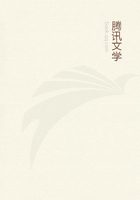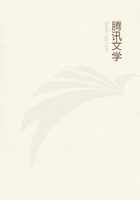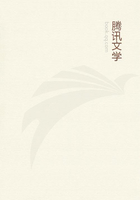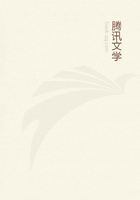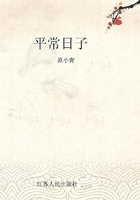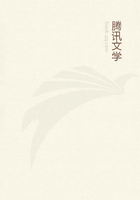THE PERCEPTION OF REALITY. BELIEF.
EVERYONE knows the difference between imagining a thing and believing in its existence, between supposing a proposition and acquiescing in its truth.In the case of acquiescence or belief, the object is not only apprehended by the mind, but is held to have reality.Belief is thus the mental state or function of cognizing reality.As used in the following pages,'Belief'
will mean every degree of assurance, including the highest possible certainty and conviction.
There are, as we know, two ways of studying every psychic state.First, the way of analysis: What does it consist in? What is its inner nature?
Of what sort of mind-stuff is it composed? Second, the way of history:
What are its conditions of production, and its connection with other facts?
Into the first way we cannot go very far.In its inner nature, belief or the sense of reality, is a sort of feeling more allied to the emotions than anything else.Mr.Bagehot distinctly calls it the 'emotion' of conviction.I just now spoke of it as acquiescence.It resembles more than anything what in the psychology of volition we know as consent.Consent is recognized by all to be a manifestation of our active nature.It would naturally be described by such terms as 'willingness' or the 'turning of our disposition.' What characterizes both consent and belief is the cessation of theoretic agitation, though the advent of an idea which is inwardly stable, and fills the mind solidly to the exclusion of contradictory ideas.
When this is the case, motor effects are apt to follow.Hence the states of consent and belief, characterized by repose on the purely intellectual side, are both intimately connected with subsequent practical activity.
This inward stability of the mind's content is as characteristic of disbelief as of belief.But we shall presently see that we never disbelieve anything except for the reason that we believe something else which contradicts the rest thing. Disbelief is thus an incidental complication to belief, and need not be considered by itself.
The true opposite of belief , psychologically considered, are doubt and inquiry, not disbelief.In both these states the content of our mind is in unrest, and the emotion engendered thereby is, like the emotion of belief itself, perfectly distinct, but perfectly indescribable in words.Both sorts of emotion may be pathologically exalted.One of the charms of drunkenness unquestionably lies in the deepening of the sense of reality and truth which is gained therein.In whatever light things may then appear to us, they seem more utterly what they are, more 'utterly utter' than when we are sober.This goes to a fully unutterable extreme in the nitrous oxide intoxication, in which a man s very soul will sweat with conviction, and he be all the while unable to tell what he is convinced of at all. The pathological state opposed to this solidity and deepening has been called the questioning mania ( Grübelsucht by the Germans).
It is sometimes found as a substantive affection, paroxysmal or chronic, and consists in the inability to rest in any conception, and the need of having it confirmed and explained 'Why do I stand here where I stand ?'
'Why is a glass a glass, a chair a chair' 'How is it that men are only of the size they are? Why not as big as houses,' etc., etc.
There is, it is true, another pathological state which is as far removed from doubt as from belief, and which some may prefer to consider the proper contrary of the latter state of mind.I refer to the feeling that everything is hollow, unreal, dead.I shall speak of this state again upon a later page.The point I wish to notice here is simply that belief and disbelief are but two aspects of one psychic state.
John Mill, reviewing various opinions about belief, comes to the conclusion that no account of it can be given:
What," he says "is the difference to our minds between thinking of a reality and representing to ourselves an imaginary picture? I confess I can see no escape from the opinion that the distinction is ultimate and primordial.There is no more difficulty in holding it to be so than in holding the difference between a sensation and an idea to be primordial.
It seems almost another aspect of the same difference....I cannot help thinking, therefore, that there is in the remembrance of a real fact, as distinguished from that of a thought, an element which does not consist...in a difference between the mere ideas which are present to the mind in the two cases.This element, howsoever we define it, constitutes belief, and is the difference between Memory and Imagination.From whatever direction we approach, this difference seems to close our path.When me arrive at it, we seem to have reached, as it were, the central point of our intellectual nature, presupposed and built upon in every attempt we make to explain the more recondite phenomena of our mental being."
If the words of Mill be taken to apply to the mere subjective analysis of belief -- to the question, What does it feel like when we have it? --
they must be held, on the whole, to be correct.Belief, the sense of reality, feels like itself -- that is about as much as we can say.
Prof.Brentano, in an admirable chapter of his Psychologie, expresses this by saying that conception and belief (which he names judgment) are two different fundamental psychic phenomena.What I myself have called (Vol.I, p.276) the 'object' of thought may be comparatively simple, like "Ha! what a pain," or "It-thunders"; or it may becomplex, like " Columbus-discovered-America-in-1492,''
or "There-exists-an-all-wise-Creator-of-the-world" In either case, however, the mere thought of the object may exist as something quite distinct from the belief in its reality.The belief, as Brentano says, presupposes the mere thought:

